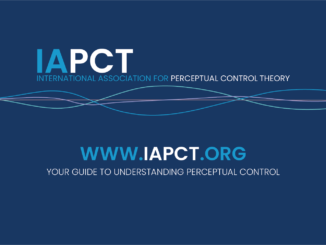
New website
We proudly present to you our new IAPCT website. This site is build in wordpress by Eva de Hullu and Matias Salgado. The purpose of the site is to provide a web portal for knowledge […]

We proudly present to you our new IAPCT website. This site is build in wordpress by Eva de Hullu and Matias Salgado. The purpose of the site is to provide a web portal for knowledge […]
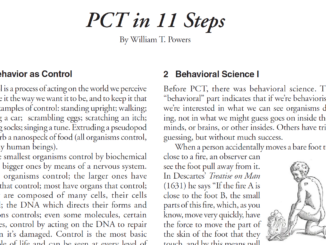
An outline of PCT written as a proposal for a series of TV programs […]
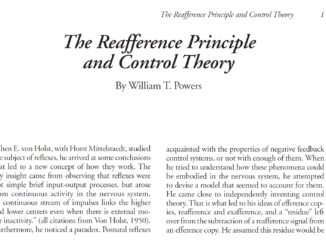
William T. Powers …small changes convert von Holst’s model into a true negative feedback control system. lf we assume with von Holst that a similar architecture holds at higher levels in the nervous system, we […]
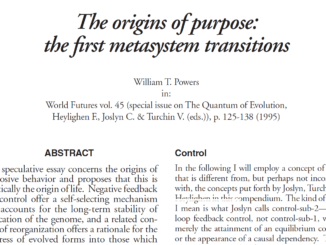
A proposal that the the emergence of negative feedback control and the emergence of life are the same thing. A picture emerges in which the basic principle of control runs like a unifying thread from the first living molecules to modern complex organisms. […]
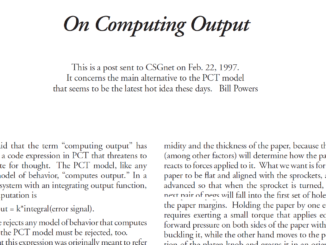
Notes on the notion that the brain plans our movements and issues commands to muscles, pre-computing the precise muscle movements for people or robots. […]
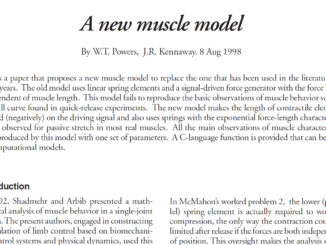
If you are going to reverse engineer and then simulate living organisms and how they move about, it is important to simulate all the physics correctly, such as the ray tracing included in the Little Man. Here is a paper that offers significant improvements regarding simulating the actions of muscles. […]
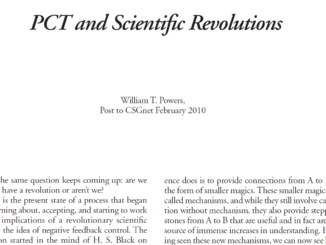
A short post to CSGnet with comments on LCS III […]
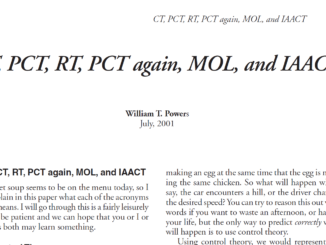
Bill Powers discusses each of these acronyms: Control Theory, Perceptual Control Theory, Reality Therapy, The Method of Levels, and The International Association for Applied Control Theory. […]
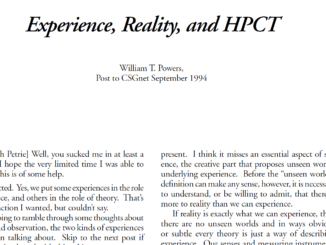
A short post to CSGnet on how we think about our senses, our experiences, and how we draw conclusions about the reality we live in (or whether we think we observe reality directly and merely need to report what we observe. […]
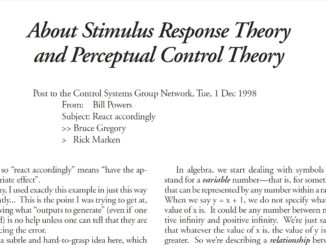
A short post to the Control System Group network (CSGnet) on the difference between cataloging behaviors and modeling systems that use behaviors to control perceptions. […]
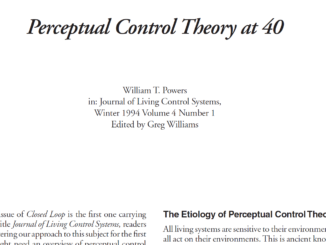
This intro to PCT is slanted toward those coming into to this subject from the physical sciences. Bill Powers develops an argument that leads from conventional views of behavior to the new view that PCT gives us, emphasizing in the end the odd role that organisms, seen through the eyes of PCT, play in a world otherwise dominated by physical laws. The point will be to show that control theory provides us with the germ of a radically new understanding, a break with all traditional theories of behavior—and many new ones as well […]
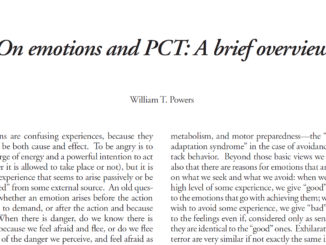
Explaining emotion from a PCT perspective. […]
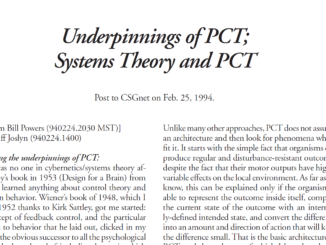
A discussion of the origin of PCT. […]
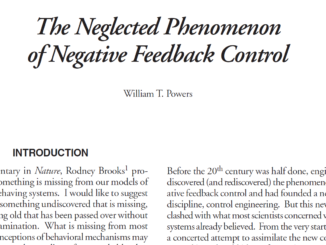
William T. Powers Control of perception has been reported at very basic levels of life.
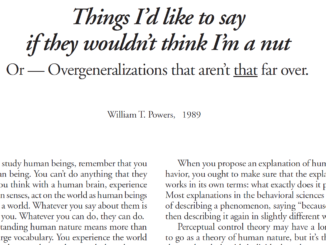
Another hard-hitting comment on the state of our contemporary behavioral sciences. […]
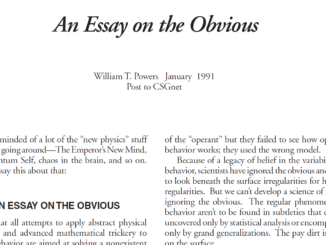
A hard-hitting essay by the creator of PCT on what you see when you look at behavior through the eyes of a physical scientist. […]
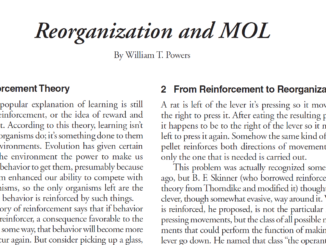
A continuation of PCT in 11 Steps, this is an overview of how control systems may come into being, change, cause internal conflict, and ways to resolve internal conflict. […]

From Reorganization to Evolution and Back
The concept of reorganization as such is irrefutable, but how can it work? In this essay and final comments, Bill Powers touches on the source and evolution of his thinking over the years. […]
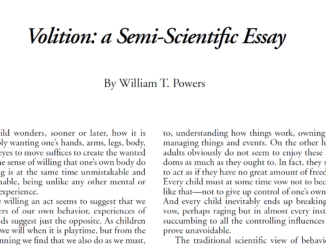
Every child wonders, sooner or later, how it is that simply wanting one’s hands, arms, legs, body, head, or eyes to move suffices to create the wanted result…. — So begins this lovely essay and overview of the fundamental issues that cry out for answers. […]
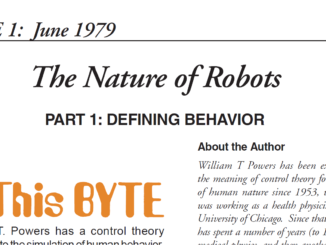
The BYTE articles are a book unto themselves – a four-part introduction to PCT and modeling. […]
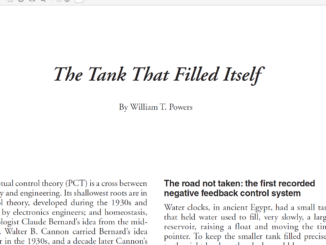
The Road Not Taken to a scientific psychology. […]
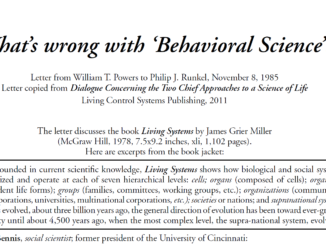
Letter to Philip J. Runkel, November 8, 1985 […]
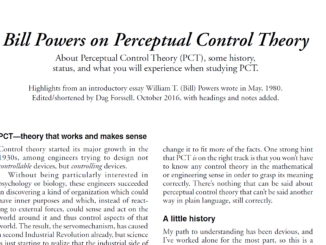
About Perceptual Control Theory (PCT), some history, status, and what you will experience when studying PCT. Highlights from an introductory essay William T. (Bill) Powers wrote in May, 1980 […]
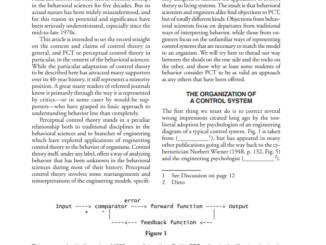
Comparing behaviorism, cognitive psych and PCT.
Misapprehensions and misstatements. […]
Copyright © 2022 iapct.org